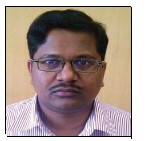
It is said that per capital power
consumption is the macro indicator
of development of the country.
Although there is a difference of
consumption pattern in the city and
villages, the average figure still gives a
fair idea. More power consumption
indicates resourcefulness of the
individual. Ironically, the difference
between supply and demand has a
bearing on consumption, which also
needs to be taken into account.
The country is poised for an average
GDP growth of 8 per cent; though some
ambitious economists also foresee
double-digit growth. Therefore many
entrepreneurs are seeking to diversify in
the power sector as their first choice.
It is felt that in the process of fair
competition, the state owned
organizations take back seat and private
players take the lead. This has been the
experience during the reforms process of
the telecom and banking sectors. There is
an apprehension that the same trend will
continue in power sector as well.
However when one ponders, one realizes
that it is a natural phenomenon and
inevitable. No one is responsible for
whatever good and bad happens with
state-owned organizations. The mindset
of all stakeholders starts gradually
changing e.g. equity holders would shift
focus on dividend than service, investors
will talk about interest as the concept of
interest-free loan from DFI will
evaporate. The consumer will be noncompromising
as it will have options by
then. Community at large will slowly
accept the change that electricity is not
as a part of welfare but a commodity.
Lastly, employees will give preference to
pay and benefits over loyalty. We
witnessed flourishing of private players
and struggling of state-owned
organizations, post liberalization.
The Electricity Act was passed in 2003
and this ushered liberalization of power
sector. In Maharashtra, erstwhile
Maharashtra State Electricity Board,
was unbundled into three companies as
per the phase of operations-generation,
transmission and distribution. At the
same time the central grid has undertaken
huge expansion of power grid in the
country. As the sector is opened up,
private payers are entered in huge
capacity to leverage on the demand. In
order to maintain its efficiency, stateowned
organizations have resorted to
EPC based operations, JV partnering as
well as outsourcing of distribution circles
through private franchises. As an effect,
today we see divergent enterprises-small,
medium and large, from

10 crore to

10,000 crore, investing in the power
sector to get share of growing economy.
The power sector will undoubtedly face
challenges in availability, training and
retention of manpower. The industry has
already started facing shortage of skilled
and experienced engineers across all
levels. At the grass-root level the "gangs"
which are employed for heavy laborious
line work are fast diminishing.
Availability of such gangs, which
represent seasonal contractual labour,
are of paramount importance in
completion of projects such as laying of
lines, erection of towers and
commissioning of sub-stations, heavy
maintenance work in bays & hot line
maintenance. Operators and technicians
that are employed on the basis of their
ITIs NCTVT certification are in short
supply. Junior engineers taken on the
basis of Diploma and Degree education
are plenty but only few qualify the
selection tests. Further the quality
diploma and degree engineers are
swayed by IT companies and electrical
companies becomes their second choice.
Inequality in pay, benefits, training and
profile offered by the private player visà-
vis state-owned companies, creates
differentiation. Private players become
the first choice for meritorious and
ambitious engineers.
Due to its state-wide network of
government-owned utilities, job postings
are made at distant places which also
become barriers and turns into a "noshow"
at the time of joining-resulting in
all recruitment efforts going down the
drain. Pay differentiation at senior level
is very high, therefore the cases of senior
engineers wanting to take option of leave
is increasing in state owned
organization, where engineer can take up
another employment for specific period
while retaining claim for re-employment
in the parent organisation.
Since all and sudden many private
players have entered the sector, almost
simultaneously, the demand for skilled
and experience hands have gone up for
people in all cadres like technical, finance,
accounts and even human resources.
It can now be summarized that stateowned
organization which otherwise are
well established, reputed, respected and
secure, have started facing a peculiar
challenge of attracting, retention and
motivation of employees. This issue will
become complex in future. Hence it is of
paramount importance to focus
management orientation to address these
issues. State utilities will have to re-orient
their HR processes to ensure that they do
not lose talent to private competitors.
Sugat Gamare is General Manager -
Human Resources with Maharashtra
State Electricity Transmission
Company Ltd.